If we want students to learn to high standards, we need them in the classroom, not the playground. (Karen Clarke, a Washington state school principal, Associated Press, 2005)
Ms. Clarke, the Tacoma, Washington principal, is not alone. Principals across the United States are making the decision to cut back on or eliminate recess. Educators for over a decade have been discussing the declining opportunity for recess in schools. Yet, recess continues to be threatened nationwide. This decline in recess has been attributed to many reasons, but mostly to the rise of state standards— and now national standards. One consequence of the accountability movement has been the elimination or reduction of everything which does not appear on a state test.
While there are many advocates for recess and many reasons to include recess, from children's physical activity to developing coordination to social, cognitive and emotional benefits for recess and outdoor play, there still seems to be the idea that eliminating recess is an easy answer to raising test scores. (Jarrett, et al. 1998; Sutterby & Frost, 2002; Pellegrini, 2005)
My own children, ages 8 and 13, have not had recess since kindergarten. The district we live in has few school playgrounds and many school officials and teachers who frown on recess, especially for the tested grades of third, fourth and fifth. For these children school is a daily grind of class after class without any break other than lunch and then hours of homework after school.
Part of this obsession with keeping children occupied comes from the theory of time on task. Time on task theory states that the longer you spend on an activity, for example, studying French vocabulary words, the more you are going to learn. If I learn 10 words in 30 minutes, in 60 minutes I should learn twice as much. If children learn from one worksheet, then two must be even better. It seems logical to all of us, and there is obvious evidence that increased time on a task does improve performance. However, what this theory does not account for is the diminishing returns that come from extending performance without a break. Research continues to demonstrate that beyond a certain point extended time on a task no longer improves productivity. (Cummins, 2000)
Every good football coach knows that at a certain point extra practice does not lead to better play and can lead to injuries. Break times are mandated by federal law for workers, military commanders know that when soldiers have been on duty for too long they begin to make mistakes and even prisoners are required to have daily breaks.
What about the children?
As schools have continued to cut recess in order to raise test scores, advocates have begun to push back. Many organizations are advocating for recess and one area they have begun to approach is legislating recess through state laws. This summer Texas Governor Rick Perry signed into law a physical education bill that among other things stated, The local school health advisory council shall consider and make policy recommendations to the district concerning the importance of daily recess for elementary school students. The council must consider research regarding unstructured and undirected play, academic and social development, and the health benefits of daily recess in making the recommendations. The bill falls far short of mandating recess, and the legislative aid who helped me locate the bill noted that if the law mandated recess it would certainly have failed.
In that right, Texas is not much different than the rest of the states. Texas, which led the way in developing standardized testing and accountability, is now among the leaders in requiring recess. According to Action for Healthy Kids(2002), only two states have laws requiring recess. Texas is a leader in many ways, one of which is in the number of obese children and adults it currently has five of the worst 15 cities in ratings of health and obesity. I suspect part of that is due to our children spending so much time in the classroom and so little time out of doors. I also believe this will begin to change in the next few years as parents continue to push back against standardized testing and some of the problems associated with it. It will also continue to be an issue as long as obesity continues to worsen in the United States.
Well, when we don't have recess, I feel like screaming. When we do have recess, I do scream. (Child comment from Jarrett & Maxwell)
I think it is interesting that we have finally come to the point that we have to legislate recess. Few of us adults grew up in an era without recess, and for us it is hard to imagine a world where it does not exist. Yet our children are growing up in just such a world, one where the opportunity to play with friends, blow off steam and just plain run around is only to be found in the history books.
Recess and free play continue to be one of the best ways for children to be physically active. Children are more active outdoors during free play, and they are even more active than during physical education. (Sutterby, Brown & Thornton, 2004)
Physically active children are healthy children, and healthy children make better learners. So if we want to make sure our children grow up educated, we also need to make sure they have the opportunities to have daily recess periods—even if we have to make it a law.
Recess is a lot more than just a free break for kids to play after lunch period. That free, unstructured play time allows kids to exercise and helps them focus better when they are in class. Now a school in Texas says it took a risk by giving students four recess periods a day, but the risk has paid off beautifully.





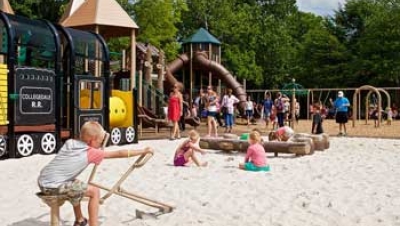

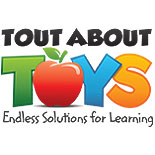
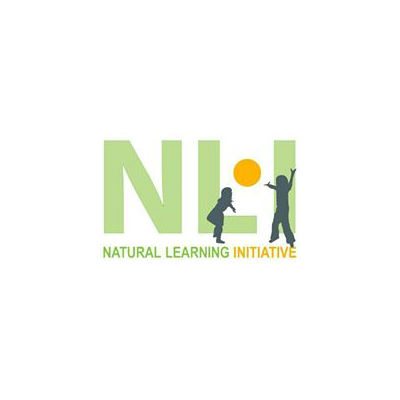





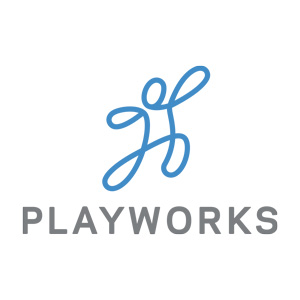
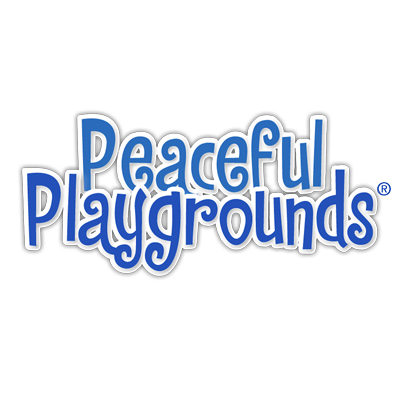



Actually, just because
Actually, just because students are not reading or writing or doing some other academic task does not mean that they are not learning. In fact, students learn valuable lessons on the playground such as cooperative play skills and creativity. The other value play has is the improvement of gross motor skills which also enhance fine motor skills by building muscles that are critical for use in such tasks as writing.
Breaks
Ken, the point is it has been working! We ALL want well educated AND well rounded children (adults). Our kids need much more than books and lessons during the school day.
More recesses
Now if ALL states would just follow suit....everyone would benefit!!!!
Hour-long break
I concur!
extra activity for young students
If you don't live in TX try adding movement to your lesson plans. For example: When we were learning to count by 5s, we'd do jumping Jacks as we counted to 100. I also included free-style dancing to various types of music which gave them an outlet for the wiggles and exposed the students to classical, jazz and other types of music.
Recess
I think they also state this is just working with Kindergarten and 1st grade classes. There was no public Kindergarten when I was a kid, but first and second graders got at least two 15-20 recesses - and perhaps one at lunch also - after 50 years it's a little hazy. By the time I was in 6th grade it was down to one recess a day, but by that time we also had physical education added to the mix. I think older kids should have some sort of break during the day also - even if it's just to sit outside and converse with friends. Even workplaces give you a 15 minute break twice a day. Any kind of break helps you reboot.
so important
As a former elementary PE teacher I use to stress to the classroom teachers how important it was for the children to have recess, In a world with just organized play, school buses and children who sit in their homes playing video games they need recess. During unorganized recess children get much need exercise, learn to be creative, learn on their own how to play fairly without officials and parents, move their bodies and just have time where everything does not have strict rules and guidelines.
Importance of play
Play is very crucial for preschoolers and other children in school, I cornfim this from my study I undertook during my undergraduate on the impact of play on learning. The children who were given opportunities to play performed well in academics, they were emotionally stable, related well with others, were very focused in their studies because they wanted to strike balance between the classwork and play. They worked had in both to remain relevant. Back here home in Kenya am working with 15 schools as an Instructional Coach for Early graders in Languages where we are incorporating the element of play to improve on their oral language. The schools are established in slums and informal settlements in Nairobi City where they have no play equipments. But with the little we are achieving/making progress... Bravo to all..
Recess
In the northeast 4 recesses in the winter may be difficult (getting all dressed in snow pants, boots, jacket, hats & gloves.. But a 2 longer recesses morning and afternoon are doable or 2 inside game times and two outside times.. But, yes I think their lack of movement contributes to behavior and children pay attn more after coming in from
Outside
7 recesses for 4th grade
I think the article meant that the 4 recesses would move up with kids. Start with k-1, next year k-2, then k-3rd.
Recess at Eagle Mountain
Thank you Debbie Rhea for bringing your studies to our district. Thankful to our Superintendent for kick starting this education and hopeful it is brought to my son's elem school, soon!!!!
Increased recess time to 4x daily
I started school in the 50s in Michigan. We had half hour recesses as well as the time to walk home and back AND eat lunch. It apparently fell by the wayside as many good programs do. It was great to actually spend time playing with your friends or make new ones ( hard to do in 15 minutes).
Longer Lunch and educate on healthy eating
We can learn from what other countries are doing well and France treats lunchtime as an education on nutrition. Let the kids take their time to eat. Teach them what nutritious food is and what garbage is. Coupled with more recess breaks it'll be amazing to see its impact.
Fantastic!
Now is the time for ALL schools to implement this same strategy.
PE and gym? Still and organised activity
Great idea.
'Play' is more than just play, it's also a time of exercise, social bonding. etc. I was not social at school, but loved playtime, even if just building sand castles.
Imagination is something we should encourage.
PE and gym? Pah, just another forced, regulated activity and I hated it. Yet, here I am, an outdoor guide for over 20 years, nearly 60 and quite fit and healthy (touch wood!).
Play should be play.
3x or 4x?
Of course in America even grown adults writing articles about the quality of our schools do not know the difference between 1x3 and 1x4 and no one else involved with this site's content will catch it and correct it.
Quadruple. Not Triple.
Are you kidding me? You should understand the difference by kindergarten.
Finally!
Children should have a 15 minute recess after each class period for outside play. That is the norm in one of the top school systems in the world:
http://www.weareteachers.com/blogs/post/2015/04/01/finland-s-a-schools
Now, change the focus from teaching to pass tests to learning.
It's brain science...
Kids need physical movement in order for their brains to encode new memories. That might be why the school is seeing good results with several short recesses. Kids learn stuff, run around the playground, their brains "write" the new info into longterm memory, and then they are ready for more learning. Exercise must be part of our learning systems. We are not brains floating around in space, we are complex physical beings.
More breaks
They have been doing this in China and other countries for years. After any major subject the kids get a break to run and move. Proven better learning, less ADHD problems etc.
No recess
I wish my kids schools had recess!!! There is no playground either, just a teacher parking lot. Gotta love Niagara Falls, NY.
Childhood Obesity
I think this is a wonderful idea!! It could help reduce childhood obesity. Kids today sit too much as it is, so let's keep them moving!!
Recess
This is what all schools (primary through to high school) in the UK are like. They have a 20 min break in the morn an hour for lunch then 20 mins in the afternoon. It breaks up the day and let's the children release their energy. They generally start school from 8.30am - 3.30pm.
That's GREAT for the Kinders
That's GREAT for the Kinders and Grade Ones, but kids of all ages benefit from regular breaks, physical activity, time outside and unstructured play &/or social time. I think one 15 minute recess a day for any school-aged kid is terrible!
No recess for 5th graders
When my son had issues with focusing, I took him to a wise Psychologist who told me that middle school would solve his problems. Middle schoolers change classes and get to walk around and talk between classes. Miracle of miracles, he was right. I think your school is over looking that piece of the puzzle. Is it possible to opt out? My son's school routinely used recess to punish disruptive students by making them sit and watch the other kids play. When my neighbor got wind of the practice, she asked the school to allow her son to walk or run (his choice) around the playground instead. 5th graders only got two breaks, one in the morning and one after lunch. PE/gym was not every day in our district. It alternated with art and music. As a substitute teacher, I say HOORAY for recess! But I too am a product of the 60's school system. We had PE everyday and alternated Art and Music.
More recess time.
As a retired teacher I applaud them for doing this. As an adult going to meetings I found my mind wandering all over the place if I had to sit too long and listen to someone talk. When I was teaching I tried to keep my kids up and around in the classroom as much as possible and it really does make a difference. When you finally DO have to sit them down they are much more receptive to whatever you are going to do next.
Not only are they not middle
Not only are they not middle-schoolers yet, but the kids who are actuallly in middle school do get regular "breaks" of a sort as they run to their lockers and their next class. It's not much of a break and certainly not recess but they are up and moving once every hour.
play
Children as well as adults need time to play and replenish their minds.I can produce ten times more work by taking a break. I as and adult learn quicker and do better on test when taking it in parts with a break especially with boring technical information on subjects that do not even apply to what I do. keep the recesses. it will also help kids be healthier in their spirit and personality and weight.
break and rest times helps
The Kindergarten and 1st grade classes should still have nap/ quiet reading times like preschools and daycares. I'm sure that more play time in school would help 2nd graders and above too. I have been studying and taking online classes and it helps me a lot by taking a break after 45 min to an hour at a time studying online. We all pretty much are like rechargeable batteries, ipads, iphones, etc by needing, rest, reboot, time away from what are are studying and doing. Just like when you spend some of the bedtime playing with your gadgets instead of leaving in the charger, by the next day, the gadgets are more likely to run out of battery energy.
https://theloudfox.files.wordpress.com/2014/09/low-battery-on-smartphon… (with one of the word that are most common used by children)
Recess
I think the four 15 minute breaks. Is a great idea. makes perfect sense that the students would perform better. They are able to get up move around and get their circulation stimulated . Great asset I think .
School Project
That's so cool thanks for the info, Texas rocks
Recess Time
When I taught school, I would have dance breaks for the 2nd graders. Turn on lively music and let them dance around the room for about 2 minutes and then back to work. They loved it and it helped them to focus more.
More recesses for kids
I commend the school for for doing this! They are correct in saying that adults can't even sit that long and it's so unfair to subject our kids to so many hours of sitting at a desk with hardly any breaks. I hope that every school follows their lead.
Recess
I have been saying it for years! In German primary schools, they go to school for 4 hours in the morning with 2 recess breaks then home for lunch followed by more outdoor/sports activities or music, dance lessons. Check every study out there...they are destroying us in Math and Science scores!
Play time for students
I'm campaigning for school board member in GA. If elected I will push for this.
I would love to see this
I would love to see this implemented in my school as well however in Minnesota and other cold weather states, the students have to change into boots and snow pants each time they go outside. So a fifteen minute break actually takes 25 round trip. It takes so much more time. It's a real conundrum.
Stress Relief and Social Skills
My career was in private school; no mandates from the government. First graders had two 30 minute recesses a day plus another 20 after lunch. We had plenty of time for subject matter, music, art, etc. and they became quite skilled at staying on focus for long periods of time.
Recess was free play, but they learned so much that was invaluable about how to get along, how to organize a game, how to compromise...so many social skills that cannot be learned another way.
I do hope parents will rise up on this issue and demand that children be allowed to have real childhoods even while going to school!
No recess for 5th graders
Our elementary has decided in the last couple of weeks to take recess away from 5th graders Monday-Thursday and give the 20 minutes of recess on Fridays. Their justification is that in middle school the kids won't get recess, and they simply need more time for instruction. To which I replied this isn't middle school is it? I am out raged by the fact the as a society we are pushing our kids to grow up so fast. I feel like we (as a society) expect our pre-teens to behave like teenagers and our teenagers to be adults. Just let them be kids!
Majoring in playground
So let's get this right ... the less time kids spend in school, the more they learn? Can you imagine how they would do if they didn't go to school at all? So this study comes to us published in a trade journal for playground equipment. Hmmm ....
Yes!!!
I think all Texas schools, in fact, all US schools should implement this asap!!
School day length
I have a question: how long is the school day? Seven 15 minute breaks a day for 4th graders seems like a lot. Are these breaks incorporated into PE and lunch recess, or are they extraneous?
Regular breaks
I work with students with autism and regular breaks are inbuilt into their individual daily time tables. I thinkl it has been an important element of successful schooling for some students who have not had much success at schools. Actually regular breaks do help adults perform better as well.
extra recess
They should have never change that...its what made school fun n socialization. Now you have pent up energy frustration eagerness. N anger with lack of energy to focus n learn at times creating situation to disrupt a classroom environment
extra recess time
I totally agree. Its the same for P.E or gym in adolescents. You cut lunch shorter Gym was across the board for every body you either had it right before lunch so you ate better or after lunch. Now confirmed to focus n go to class squeezing extra curricular activities after school is not the same. They also need a reboot because the attention span falls short of focus. And I. Don't believe ADHD or ADD is the answer for all issues regarding adolescents.
nit-pick
I think you meant quadruple, not triple.
school recess
I'm a product of the 60's school system. We not only had recess daily but gym was part of the daily routine. We were healthier & eager to learn.
There should be a full hour break for lunch
Now...increase lunch time to a full hour and watch kids do better.... And give them real food to eat....
Love this!
YESSSSS!